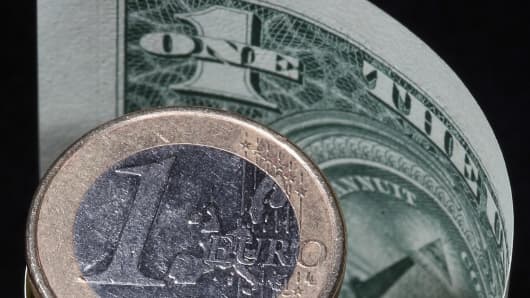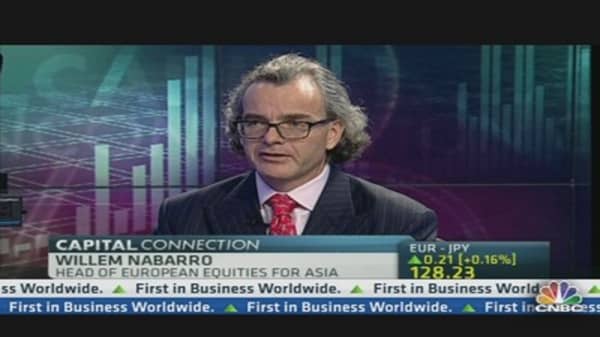Talk of a rate cut usually sends a currency lower, so no wonder analysts are puzzled as the euro holds firm in the face of growing speculation that the European Central Bank will lower interest rates when it meets on Thursday.
The single currency hovered near $1.31 on Tuesday, up 2.7 percent from more than four-month lows hit in early April, brushing off latest signs of weakness in the euro zone economy that analysts say support the case for a rate cut this week.
"We have now seen evidence of weaker consumer, business and investor confidence and if the central bank does not act now, they risk allowing the sour mood to slow growth even further," Kathy Lien, managing director at BK Asset Management, said in a note. "Yet with a rate cut looming, many traders may be wondering why the euro refuses to fall. "
Data on Monday showed that confidence in the euro zone's economy fell for a second straight month in April and by more than expected, the latest sign of poor economic growth in the euro area.
According to Lien, one reason the euro may not be reacting to the rate-cut talk is that markets have already priced a quarter point reduction in rates and are holding out for more aggressive action from the central bank before they sell the single currency.
"The euro is trading like it wants more aggressive action from the ECB beyond a rate cut to break below $1.2950," she said. "In other words, investors already expect the ECB to ease, so if they [policymakers] do not follow up with a bolder commitment, euro/dollar … could end up still trading above $1.30."
(Read More:ECB Rate Cut Could Bring 'Disappointment')
The ECB's key interest rate is 0.75 percent and the scope for further monetary easing via rate cuts is limited. This means the central bank may have to consider mulling other stimulus measures such as buying bonds, analysts say.
"We're looking for a rate-cut this week, what is important is if there is any implementation of non-standard measures and this is what could impact the euro and trigger downward pressure," Mitul Kotecha, head of global currency strategy at Credit Agricole, told CNBC's "Capital Connection."





